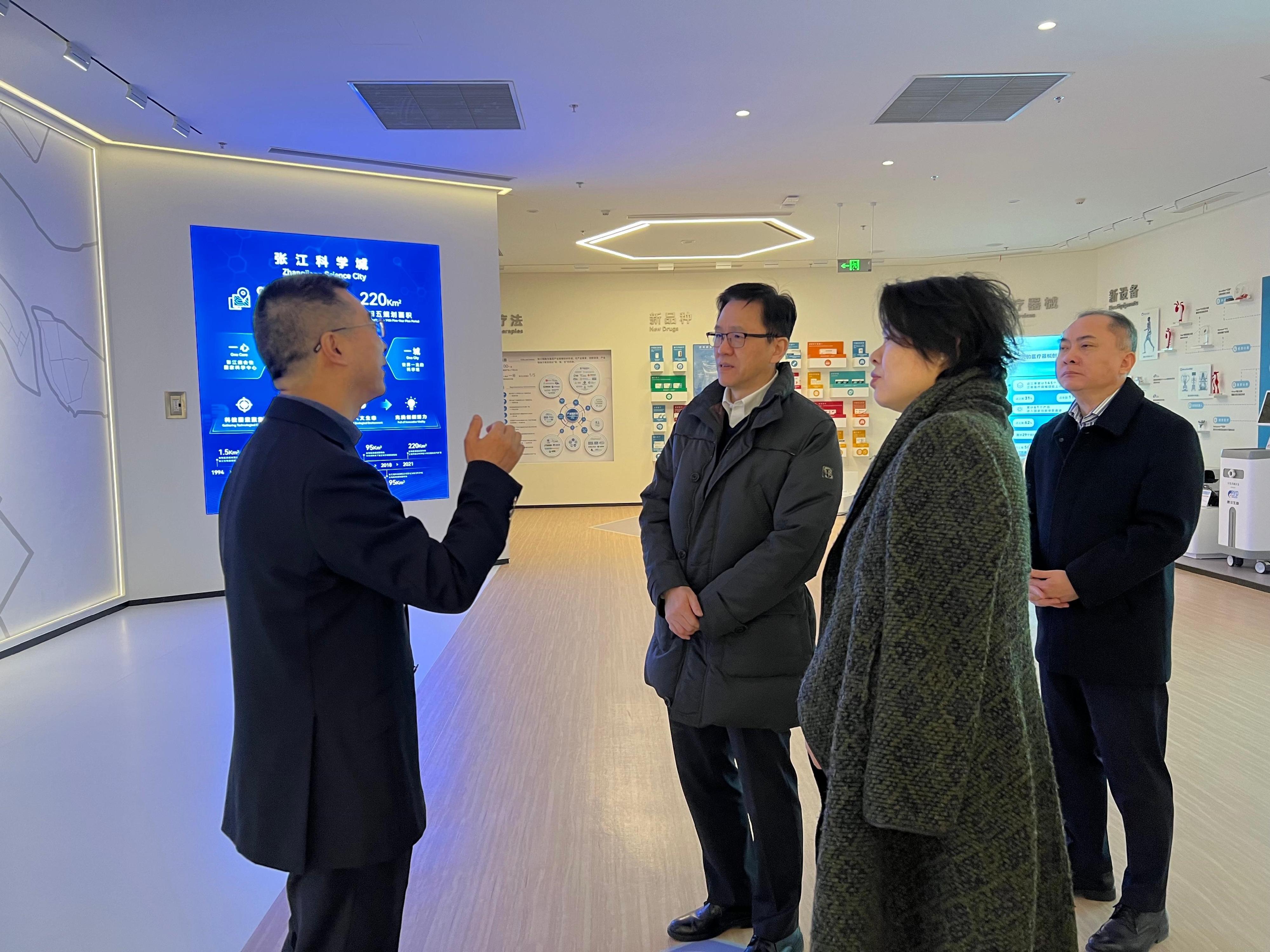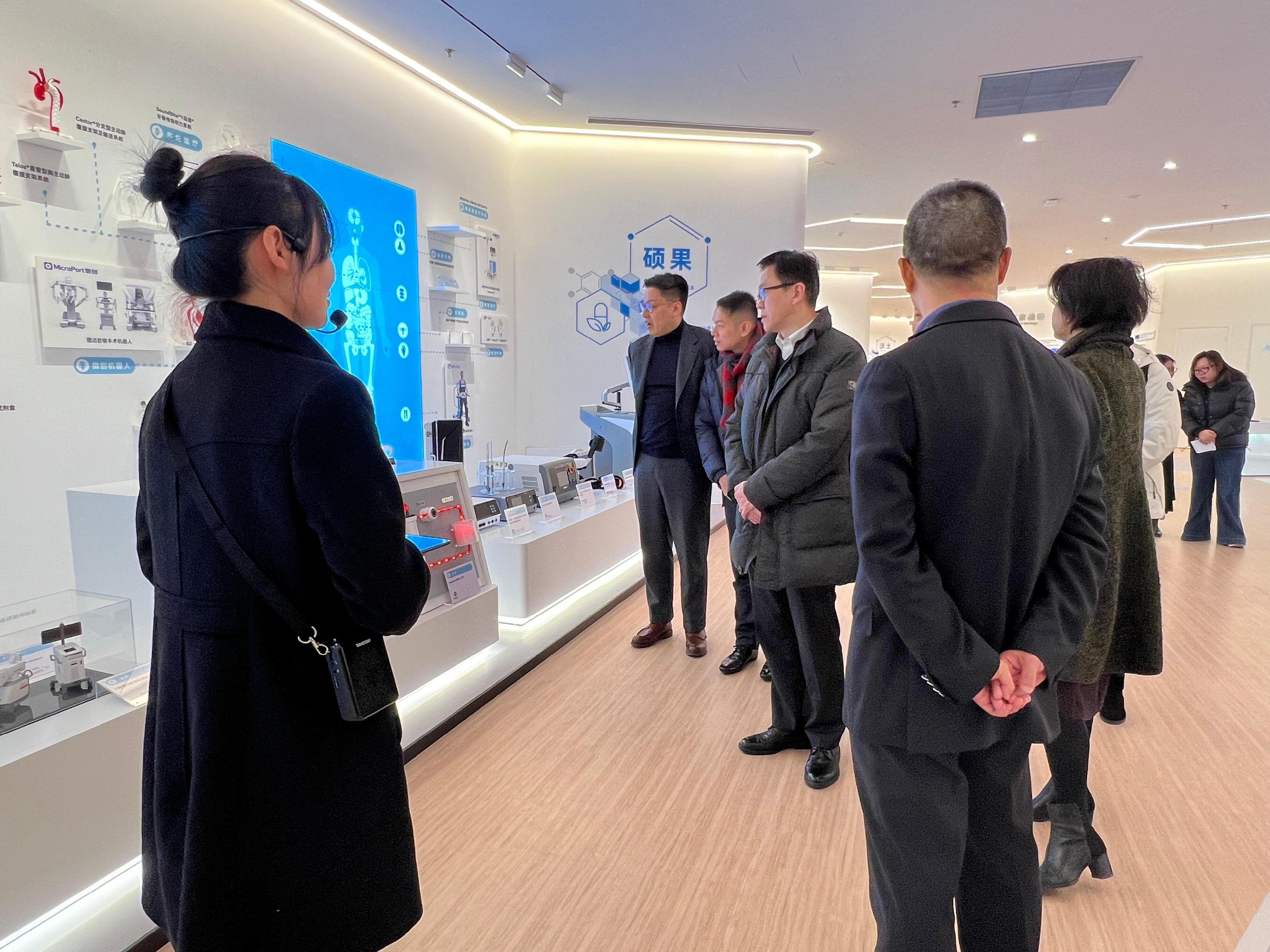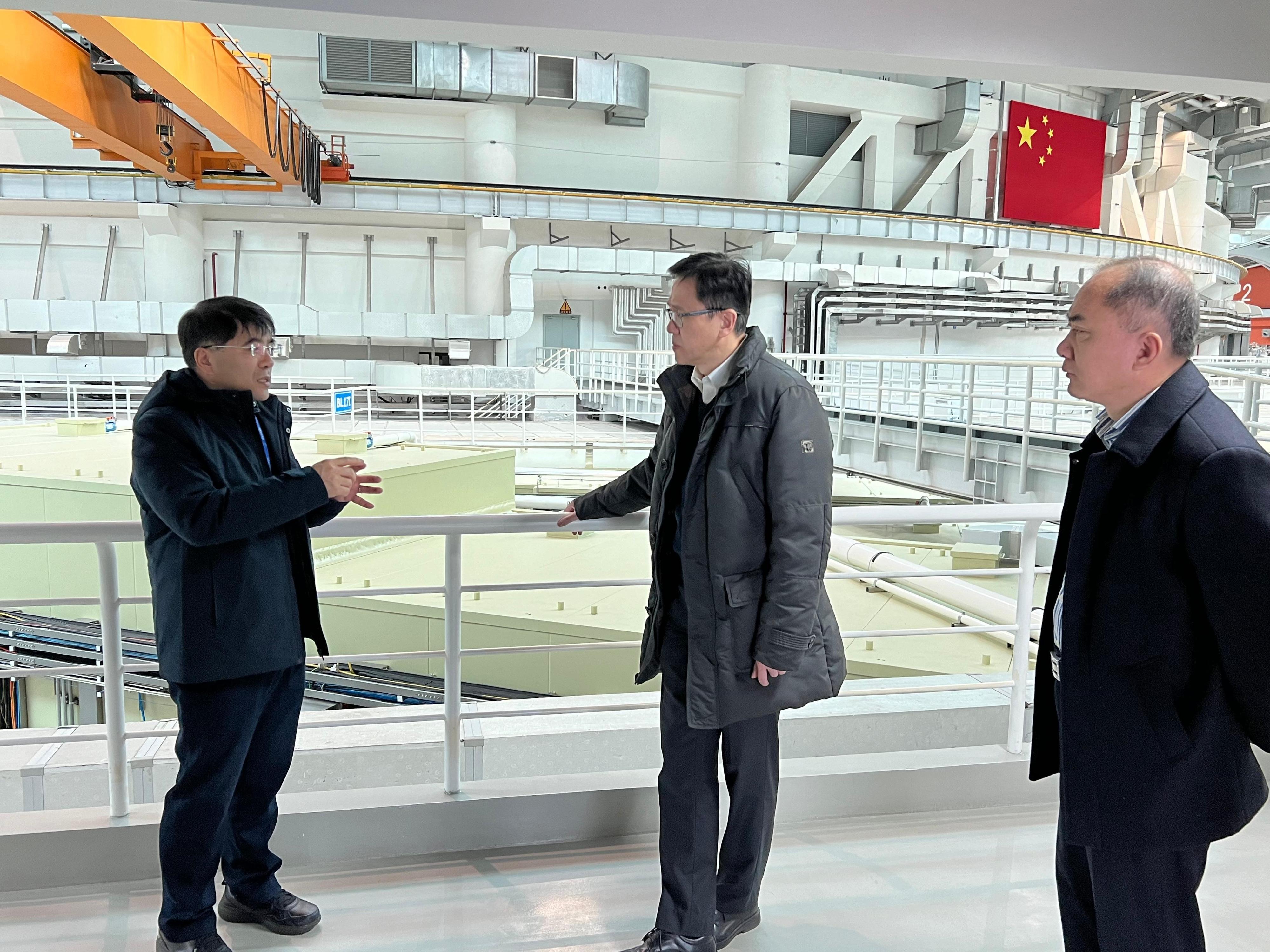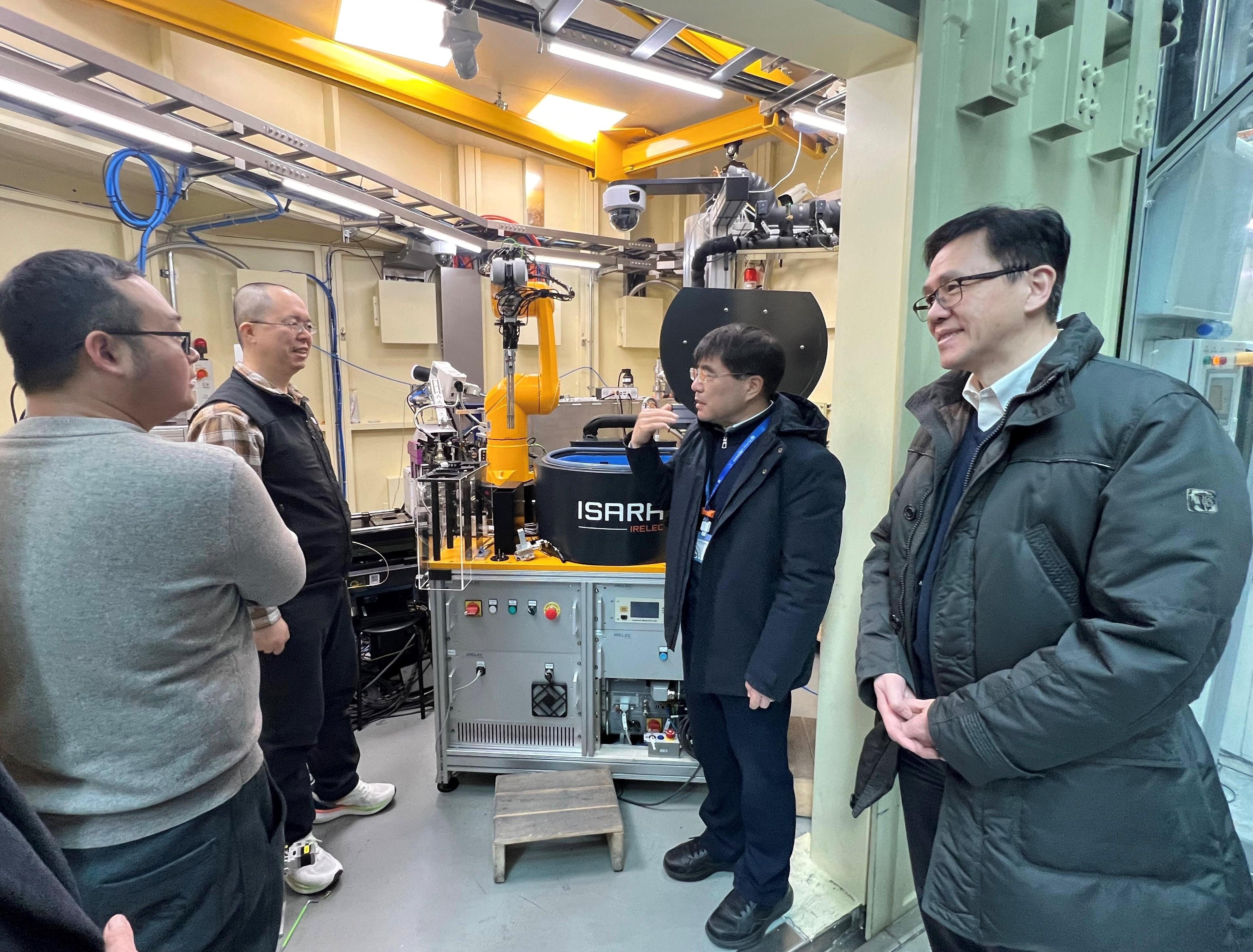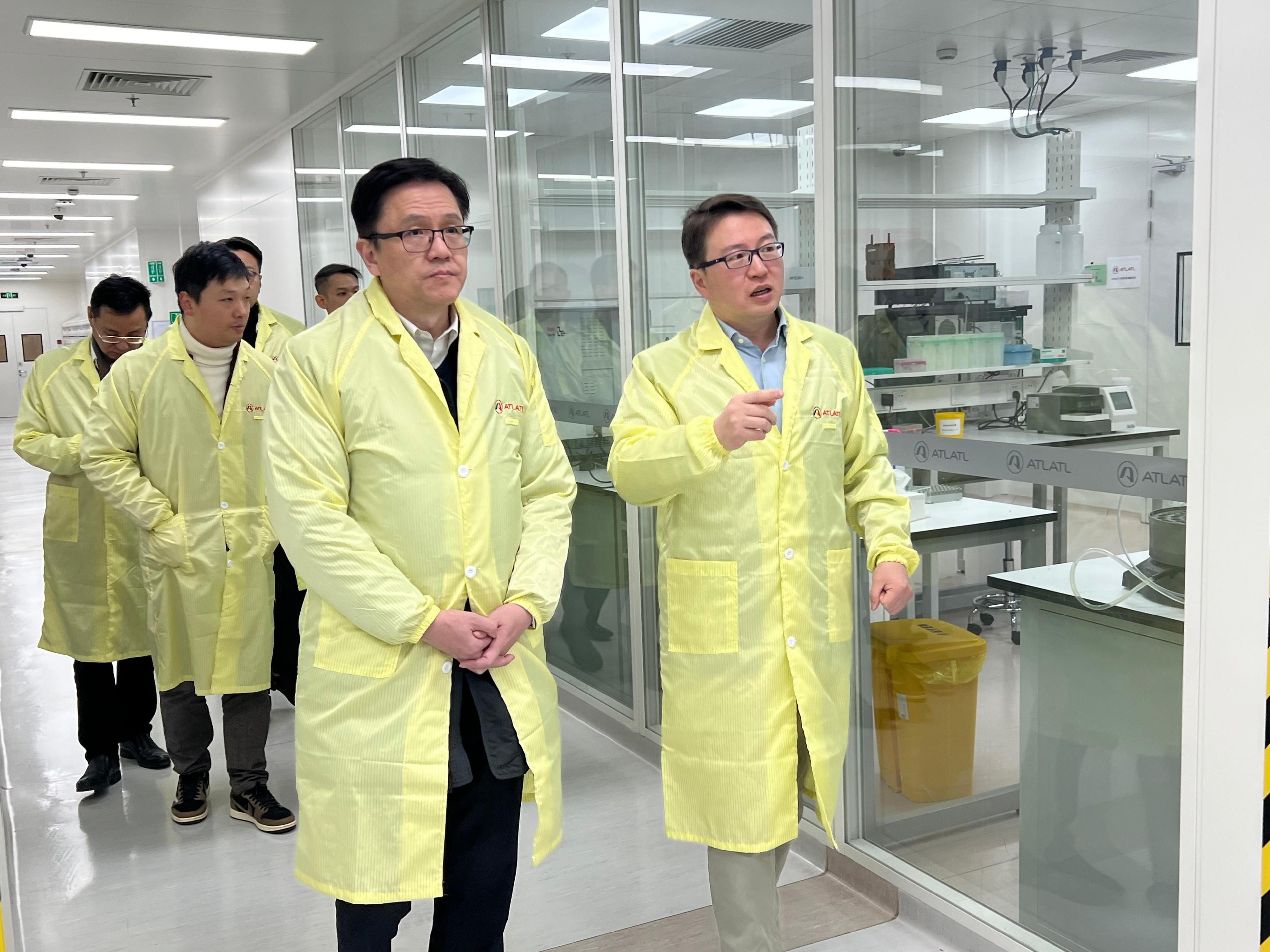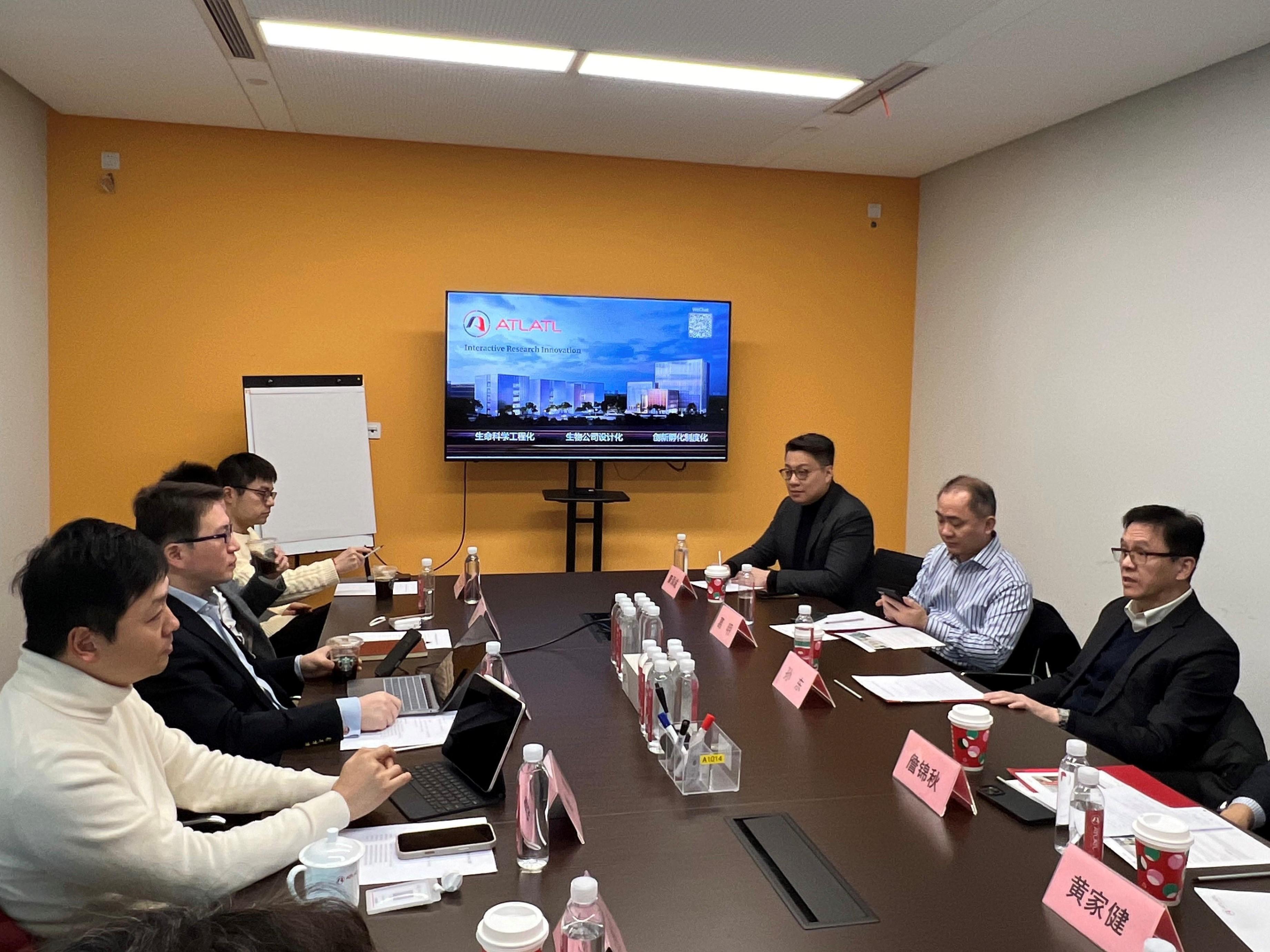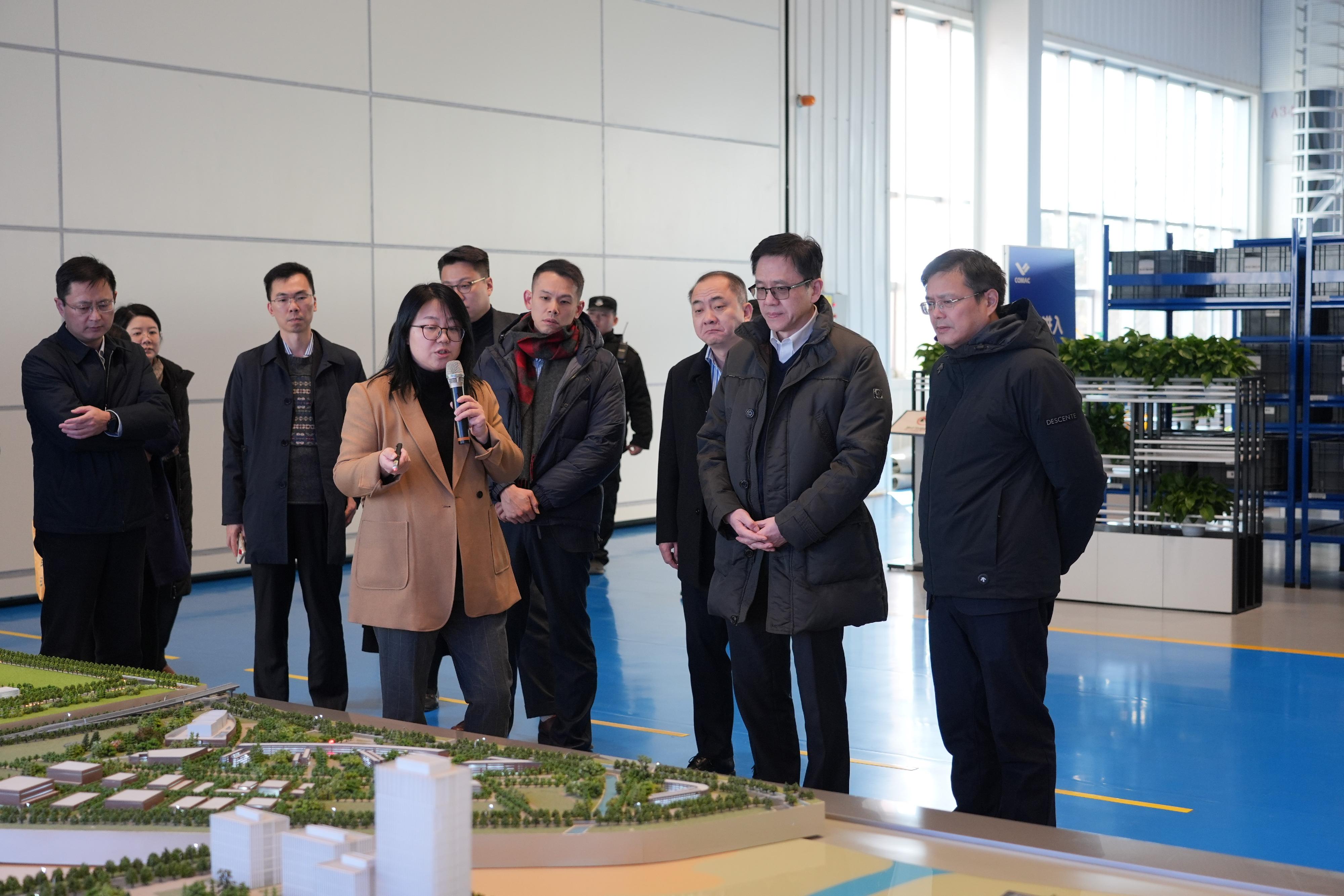Following is a question by the Hon Tang Ka-piu and a written reply by the Secretary for Development, Ms Bernadette Linn, in the Legislative Council today (January 15):
Question:
According to the Cha Kwo Ling, Yau Tong, Lei Yue Mun Outline Zoning Plan No. S/K15/27 (the OZP), a number of sites in Yau Tong are zoned for Comprehensive Development Area or residential purposes, and it is learnt that Cha Kwo Ling Village will also be redeveloped into a public housing project of the Hong Kong Housing Society. In this connection, will the Government inform this Council:
(1) whether it has estimated the number of residential units and population in areas that fall within the OZP (i) at present, (ii) in 2034 and (iii) in 2044 respectively; whether it has plans to improve the ancillary transport facilities in areas that fall within the OZP in the light of population growth; if so, of the details and the relevant timetable for completion;
(2) as it is learnt that the authorities have all along been planning for the development of the Sai Tso Wan Park at Sin Fat Road, and the Electrical and Mechanical Services Department surrendered the site of the Sai Tso Wan car park to the Lands Department in March last year, but the authorities have not come up with a timetable for the development of the site so far, of the reasons for that, and the circumstances under which the authorities will commence the relevant works;
(3) apart from the Sai Tso Wan Park, whether the authorities have planned for additional community facilities in areas that fall within the OZP; if so, of the details and the relevant timetable for completion; if not, the reasons for that;
(4) on the sites zoned for Comprehensive Development Area or residential purposes in accordance with the OZP, of the respective numbers of (a) buildings, (b) buildings to be redeveloped soon, (c) units with business operations (i.e. (i) industrial, (ii) warehouse, (iii) office and (iv) other business operations), and (d) vacant units (i) which are for industrial use or (ii) which provide accommodation for a mix of industrial and commercial uses (set out in the table below);
| Use of buildings |
(a) |
(b) |
(c) |
(d) |
|
(i) |
…… |
(iv) |
| (i) |
|
|
|
|
|
|
| (ii) |
|
|
|
|
|
|
(5) as there are views that with the successive completion of residential developments in the Yau Tong Industrial Area, the air and noise pollution generated by the industrial undertakings in the vicinity will cause nuisance to the daily lives of an increasing number of residents, and it has been reported that a concrete batching plant in the area is suspected of continuing to operate in contravention of the law in spite of the rejection of its licence renewal by the Environmental Protection Department, of the authorities’ measures in place to assist in reprovisioning the existing industrial undertakings in the area, so as to minimise the incompatibility between land use and planning;
(6) whether the Government has requested that developers construct waterfront promenades in developments adjacent to the waterfront in the area; if so, of the relevant completion dates, and how it ensures the continuity of the various sections of the waterfront promenades; if not, the reasons for that, and whether the Government will consider constructing waterfront promenades itself when developers have not done so;
(7) as there are views that the site of Yau Tong Bay Comprehensive Development Area is suitable for building a marina to tie in with the positioning of Kowloon East as the second core business district and promote the development of culture, sports and tourism in Kowloon East, whether the Government has measures in place to tie in with such development; if so, of the details; if not, the reasons for that;
(8) as it is learnt that there are quite a number of buildings with historical and social values in Cha Kwo Ling Village (e.g. the former Four Hills Public School and other stone buildings), whether the Government will conserve and revitalise them for the purposes of tourism and display of cultural characteristics; and
(9) as it is learnt that the Liquefied Petroleum Gas filling station at Wai Lok Street will be reprovisioned in the vicinity, and there are views that the proposed site will impede the public’s enjoyment of the waterfront, whether the Government has plans to identify a new site in Kowloon East for reprovisioning the filling station under the principle of optimising the use of waterfront sites?
Reply:
President,
The question raised has nine parts and covers a multitude of issues. In consultation with relevant bureaux, our reply is as follows:
(1) According to the results of the latest Population Census conducted by the Census and Statistics Department in 2021, the area covered by “Cha Kwo Ling, Yau Tong, Lei Yue Mun Outline Zoning Plan No. S/K/15/27” (“OZP”) had around 46 800 residential flats and an approximate population of 133 600 then. The Government has not made an estimate on the number of residential units or the expected population in the area concerned by 2034 or 2044.
New population intake is expected as several housing development projects in the area concerned are underway. These projects include:
(a) Development of ex-Cha Kwo Ling Kaolin Mine Site (Phase 2) (ex-CKLKMS Phase 2 development): this project could provide about 2 250 public housing units with population intake expected to be in the fourth quarter of 2030 and an expected population of about 6 400;
(b) Public housing development at Cha Kwo Ling Village, Kowloon East (CKLV development): Phase 1 of this project will provide about 1 000 units with expected population intake in the second quarter of 2031; Phase 2 of this project will provide about 3 500 units with expected population intake in the fourth quarter of 2033. The two phases are expected to accommodate a population of about 12 600;
(c) Public housing developments at Pik Wan Road, Yau Tong (Pik Wan Road developments): this project will provide about 3 120 flats for phased completion between 2026 and 2028 and with an expected population of about 8 700.
In view of the aforementioned housing development projects, the Civil Engineering and Development Department (CEDD) has conducted Transport and Traffic Impact Assessment in order to formulate suitable transport accommodation and arrangements. For ex-CKLKMS Phase 2 development and CKLV development, the CEDD will construct additional carriageway and footway to connect the two aforementioned housing developments. There would also be works to improve roads nearby for increasing traffic capacity, with expected completion between 2027 and 2029. Furthermore, the CEDD has completed road widening and improvement works near Pik Wan Road in 2024. Construction works for the pedestrian walkway system between Pik Wan Road and Lei Yue Mun Road in Yau Tong is expected to be completed in 2027 to match with the population intake of Pik Wan Road developments.
(2) The Government has undertaken preliminary study on providing leisure facilities and public vehicle park at the Sai Tso Wan site, and has identified certain technical constraints due to its proximity with Sai Tso Wan Landfill. The implementation of any concrete plan would have to await departments to have considered relevant technical studies. The Government will consult Kwun Tong District Council and relevant stakeholders on the project scope in due course.
(3) Ex-CKLKMS Phase 2 development and CKLV development will provide social welfare services for the children, the elderly and others with rehabilitation needs respectively. In addition, the Government has reserved a site to build a joint-user complex that is expected to include sports centre, facilities of the Department of Health, social welfare facilities, public transport interchange, library, and public vehicle park in order to meet local needs.
(4) According to records of Planning Department and Report on 2020 Area Assessments of Industrial Land in the Territory, there are 19 industrial buildings and industrial-cum-commercial mixed-use buildings which are yet to be redeveloped in the “Comprehensive Development Area” (“CDA”) and “Residential (Group E)” zone. Amongst them, two had obtained building plan approval for redevelopment. Three of the said 19 buildings had been demolished. We do not maintain statistics on business units or vacant units in the remaining buildings.
(5) The industrial sites in Yau Tong Industrial Area were rezoned from “Industrial” to “CDA”, “Residential (Group E)” and “Commercial” in 1998 to encourage land owners to redevelop the original industrial buildings and sites for private residential and/or commercial uses, and to speed up urban renewal with the help of market forces. Town planning is a continuous process where approved original use of the sites will remain before redevelopment, which is a necessary process of urban renewal to replace old with new. Current land uses, provided that they shall be lawful, are not necessarily in conflict with redevelopment of adjacent sites. In this connection, the two concrete batching plants in Yau Tong which are suspected to have operated without a licence should not be compared directly with other complying industrial operators in the district. The Environmental Protection Department has issued a number of prosecution summonses to plants that were suspected to have unlicensed operation in the past three years.
(6) Most of the waterfront sites of Yau Tong and Cha Kwo Ling are zoned “CDA” or “Open Space” in the “OZP” and had been planned for developments including waterfront promenade. Amongst them, the waterfront of the “CDA” in Yau Tong Bay and Yau Tong Industrial Area is mostly under private ownership. Under the “OZP”, the developer concerned is required to provide a public waterfront promenade with a minimum width of 15 metres. In this connection, part of the waterfront promenade in the “CDA” has gradually been open to the public since 2024, while remaining parts are pending redevelopment projects to be undertaken by private developers. As for the Cha Kwo Ling waterfront promenade, part of the promenade has been open to the public in 2023, while the remaining part will be developed jointly with the adjacent campus development programme of the Vocational Training Council (VTC).
(7) The waterfront of Yau Tong Bay is mostly under private ownership. The Government is open to proposals of yacht club development within the Yau Tong Bay “CDA”, such as to allow lot owners to develop yacht berthing-related landside facilities at specific locations within the relevant area through planning application. We believe that the proposed amendments to the Protection of the Harbour Ordinance, which are now under consideration by the Legislative Council, will facilitate developing yacht club at the aforementioned location.
(8) The Law Mansion within the CKLV development area is rated as Grade 3 historic building by the Antiquities Advisory Board. The Hong Kong Housing Society (HKHS) will preserve and revitalise the Law Mansion for public admission when taking forward said development. In order to facilitate tourists to appreciate the Law Mansion, a visual corridor of not less than 20 metres outside the Law Mansion with a setback of not less than 10 metres around will be constructed. In order to strike a balance between development and conservation, and facilitate cultural and tourism needs, for buildings and related articles without historic grading, the HKHS will also consider repurposing and incorporating them in the design of the development for public display in the future, having taken into consideration the practical situations.
(9) The existing dedicated Liquified Petroleum Gas filling station on Wai Lok Street has to be reprovisioned as it is located within the area of the VTC’s campus development. To maintain the filling service in the district, the filling station will have to be reprovisioned in the vicinity. The reprovisioned filling station will not be located within the 50-metre-wide waterfront promenade. Furthermore, the VTC project will construct a landscape barrier between the filling station and the waterfront promenade during the construction phase. When designing the filling station, the Environment and Ecology Bureau will take into consideration the surrounding environment and maintain communication with relevant departments and stakeholders to ensure that the reprovisioned filling station will not impede public enjoyment of the waterfront area.
read more


